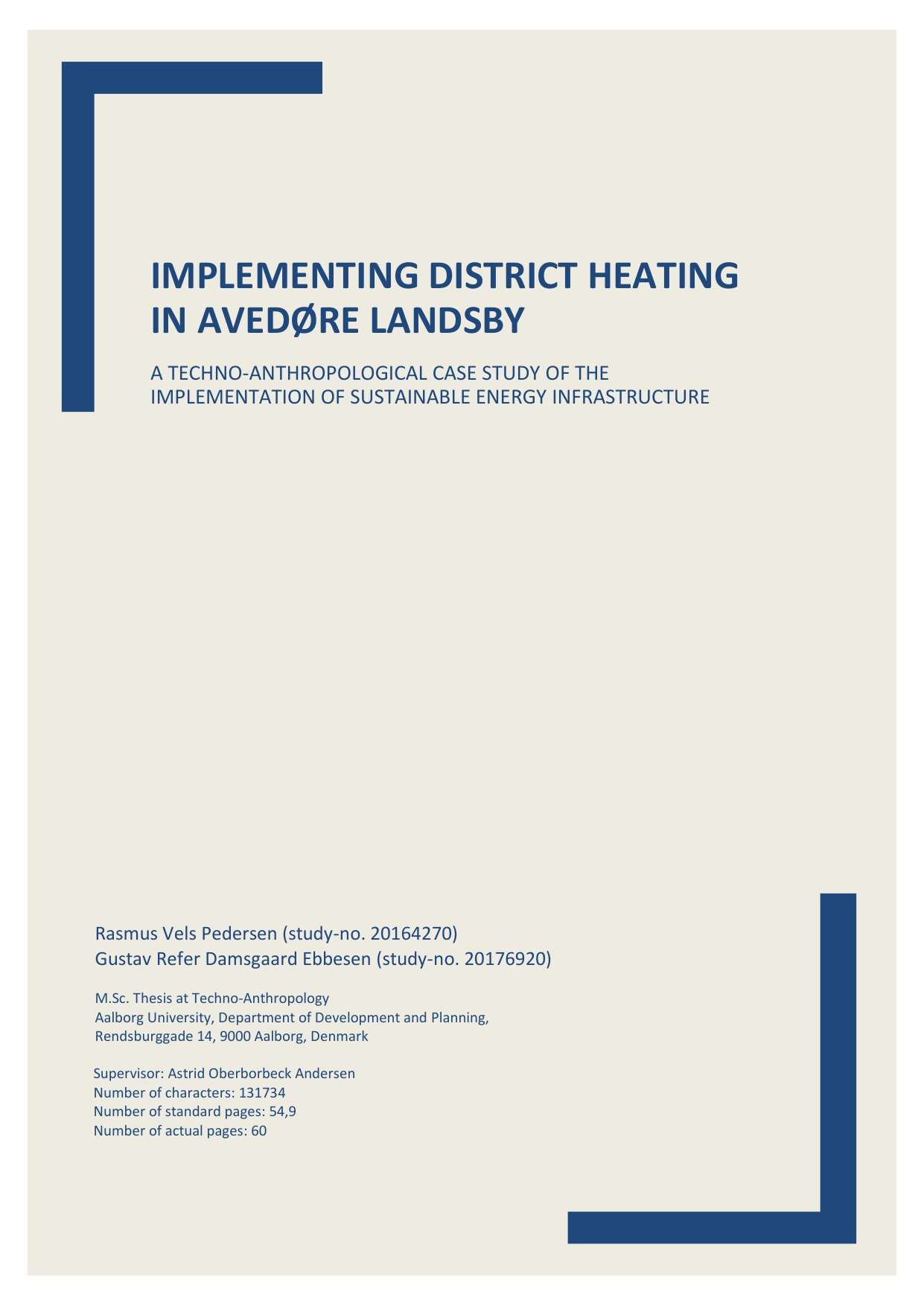
IMPLEMENTING DISTRICT HEATING IN AVEDØRE LANDSBY: A TECHNO-ANTHROPOLOGICAL CASE STUDY OF THE IMPLEMENTATION OF SUSTAINABLE ENERGY INFRASTRUCTURE
Term
4. term
Education
Publication year
2022
Submitted on
2022-06-02
Pages
60
Abstract
With the Russian invasion of Ukraine in late February 2022, geopolitical pressures to decarbonize the European heat supply increased, raising the stakes for green energy transition projects. While the success of such projects are often perceived as a result of efficient technological solutions, the present report presents a case for viewing green energy transitions as sociotechnical phenomena. Based on an ethnographic fieldwork among project stakeholders in Avedøre Green City, centred around participant observation and open and informal conversations with informants, this report elucidates, how major human and non-human actors affect the conditions for the successful implementation of low temperature district heating in Avedøre Landsby. Drawing on Situational Analysis and Actor-network Theory, analysis reveals that lacking knowledge about the social processes of structuring collaborative and citizen centred parts of the project disrupts the process, as planning is stalled by the project advisors' disagreements on whose knowledge counts. Through the discussion, the report argues that a perspective of participation and co-creation with citizens should be used as a way of ensuring early, ongoing and inclusive involvement, meanwhile tackling issues regarding absent information. For projects like AGC to succeed, the social nature of technology implementation must be designed for and included into the internal fabric of every project. Keywords: Citizen Engagement; Renewable Energy; District Heating; Qualitative Research; Information Barriers; Energy Transitions; Case Study; Public Inclusion; Ethnography
With the Russian invasion of Ukraine in late February 2022, geopolitical pressures to decarbonize the European heat supply increased, raising the stakes for green energy transition projects. While the success of such projects are often perceived as a result of efficient technological solutions, the present report presents a case for viewing green energy transitions as sociotechnical phenomena. Based on an ethnographic fieldwork among project stakeholders in Avedøre Green City, centred around participant observation and open and informal conversations with informants, this report elucidates, how major human and non-human actors affect the conditions for the successful implementation of low temperature district heating in Avedøre Landsby. Drawing on Situational Analysis and Actor-network Theory, analysis reveals that lacking knowledge about the social processes of structuring collaborative and citizen centred parts of the project disrupts the process, as planning is stalled by the project advisors' disagreements on whose knowledge counts. Through the discussion, the report argues that a perspective of participation and co-creation with citizens should be used as a way of ensuring early, ongoing and inclusive involvement, meanwhile tackling issues regarding absent information. For projects like AGC to succeed, the social nature of technology implementation must be designed for and included into the internal fabric of every project. Keywords: Citizen Engagement; Renewable Energy; District Heating; Qualitative Research; Information Barriers; Energy Transitions; Case Study; Public Inclusion; Ethnography
Keywords
Documents
